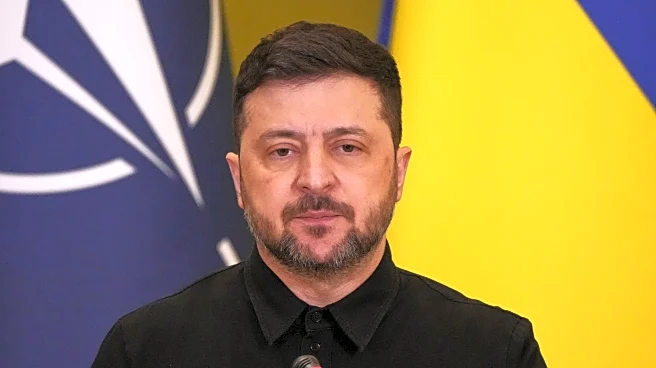What is the story about?
What's Happening?
David Adler, a Southern Californian activist, was among over 450 individuals detained by Israeli naval forces while attempting to deliver humanitarian aid to Gaza via the Gaza Sumud Flotilla. The flotilla, consisting of approximately 40 boats, was intercepted in international waters. Adler and other U.S. citizens were held in Israeli custody before being released and deported to Jordan. The flotilla aimed to break the blockade on Gaza, which has led to severe humanitarian issues, including famine. The U.S. State Department has been criticized for its perceived lack of assertiveness in securing the release of its citizens, with family members expressing frustration over the government's response.
Why It's Important?
The detention and subsequent release of U.S. citizens highlight ongoing tensions between Israel and international activists attempting to address humanitarian crises in Gaza. The blockade and military actions by Israel have been met with accusations of genocide from international bodies, which Israel denies. The incident underscores the complex geopolitical dynamics involving U.S. foreign policy, Israel's security measures, and humanitarian efforts. The U.S. government's handling of the situation may impact its diplomatic relations and influence public opinion regarding its commitment to protecting citizens abroad.
What's Next?
Following the release of the activists, there may be increased pressure on the U.S. government to reassess its approach to international humanitarian missions and its diplomatic stance with Israel. Activists and human rights organizations might continue to advocate for more robust support from the U.S. in similar situations. Additionally, the incident could lead to further scrutiny of Israel's blockade policies and their humanitarian impact, potentially influencing international diplomatic discussions and policy decisions.
Beyond the Headlines
The event raises ethical questions about the balance between national security and humanitarian aid, as well as the role of international activism in conflict zones. It also highlights the risks faced by individuals involved in humanitarian missions and the potential consequences of political actions on personal safety. The involvement of prominent figures and the media attention may drive broader public discourse on the effectiveness and morality of such interventions.
















